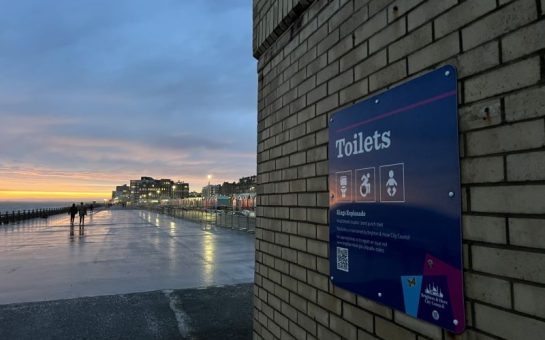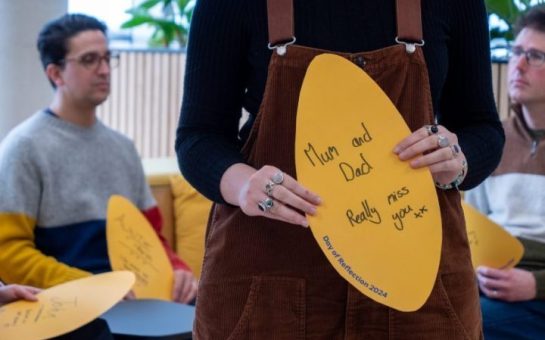![]() By Tara Fair
By Tara Fair
May 7 2020, 06.25
Follow @SW_Londoner
“Stay at home, stay connected.” The mantra of a nation in lockdown.
Virtual pub quizzes, online concerts, and Instagram challenges have become the new normal in the wake of the global pandemic.
To stay connected to loved ones during isolation it has become necessary for people to increase their time online.
However, for some people, this time does not represent a momentary change in casual internet use.
UK Addiction Treatment Centres (UKAT) group treatment lead, Dr Nuno Albuquerque, warns internet addiction is becoming more common.
Dr Albuquerque said: “Addiction was already a pandemic we were dealing with and will continue to deal with long after Covid-19 ends.”
Virtually all UK adults aged 16-44 use the internet (99%), according to an Office of National Statistics 2019 report. This figure drops to 91% to include adults of all ages but has been increasing over the years.
Natalie, 37, says: “I’m online most of the time.” Normally this kind of statement would be taken with a pinch of salt, but in this case it is true.
Natalie has struggled to control her internet habits since 1999 and admits she spends almost every waking moment online.
“During my high school years, even though I had friends, I was introduced to AOL (chatrooms) and I quickly got addicted to it.”
In this time of uncertainty, one thing remains the same: that our number one priority is and will always be to protect and care for our clients, staff, families and friends.
— UKAT (@UKATcouk) April 9, 2020
Read about the COVID-19 safety measures at our facilities here: https://t.co/Ie60AFKFNf #covidー19uk pic.twitter.com/hj7KdLZXrd
She explains over time she pushed her ‘real-life’ friends away in favour of the more reliable comfort the internet provided.
Research has shown that in both behavioural addictions and substance related addictions, the pleasure centres in the brain are activated which releases the ‘feel-good chemical’ dopamine.
Psychologist Dr Daria Kuss found a number of personality traits linked to internet addiction such as being impulsive, neurotic or particularly conscientious.
Online roleplaying games require gamers to work together in groups where they form dedicated communities and share responsibility.
Dr Kuss explains people who are especially conscientious are more likely to engage excessively with these games thus increasing their risk of developing an addiction.
Dr Kuss said: “It’s only a very small minority of excessive users who will become addicted or develop addiction related symptoms. And that very small minority are who we are most concerned with, who may require professional treatment.”
For internet addicts, endless hours online often comes at the detriment of real-life responsibilities such as relationships or professional activities.
Natalie explains: “I felt abandoned by my friends and family, so I withdrew into seclusion from the outside world.
“The internet became my teacher and only connection to the outside world, I even dropped out of college back when I was living in Chicago.
“I became more open on the web than in real life, it’s easier to talk on the internet.”
Natalie often stays awake until 6am, attributing her shattered sleep schedule to her internet habits.
Just as with substance addictions, people with an internet addiction can experience withdrawal symptoms.
Dr Kuss explains research proves individuals often experience physical withdrawal such as heart palpitations, tremors, sweatiness.
However, psychological withdrawals such as anxiety, irritability, trouble sleeping and problems concentrating, tend to be more common with internet addiction.
Natalie admits her internet use offers only temporary respite from feelings of isolation and depression but seems reluctant to make a significant change.
“I shouldn’t be online 24/7. It’s not like the internet is going to soothe my sorrows whenever I get depressed.
“I should be doing more than just surfing the internet. I should be going out more. But feeling abandoned and alone, I felt like I had no choice but to stick with what I was used to.”
UKAT has seven centres scattered across the UK and have adapted their practices to continue work during the pandemic.
Two centres have been allocated as observation units where admissions self-isolate before being transferred to complete their treatment.
UKAT use cognitive behavioural therapy amongst other methods to help people manage their addiction and develop a moderated and positive use of technology.
When asked about the effect of the pandemic on internet addiction, Dr Albuquerque said: “I don’t think we will know the size of the problem until all of this is over.
“Right now people are encouraged to use the internet much more to connect with people so when we revert to normality we will see if people are able to re-engage in human connection, social activities – only then will we have a better picture of the effects of Covid-19 on the internet addiction problem.”
Dr Albuquerque urges people not to postpone or stop dealing with their addiction because of the pandemic.
For help and support with Internet Addiction Disorder, visit www.ukat.co.uk/internet-addiction/




